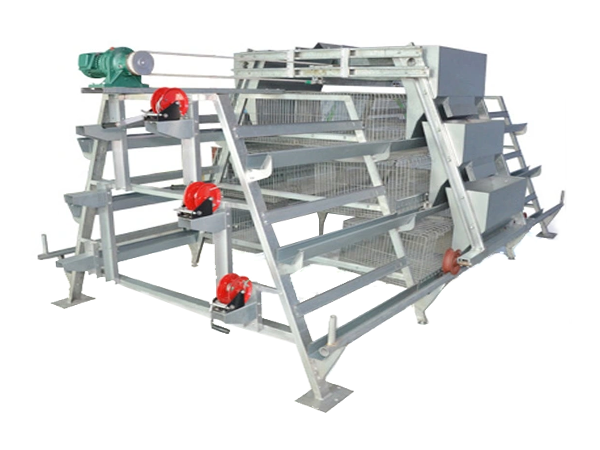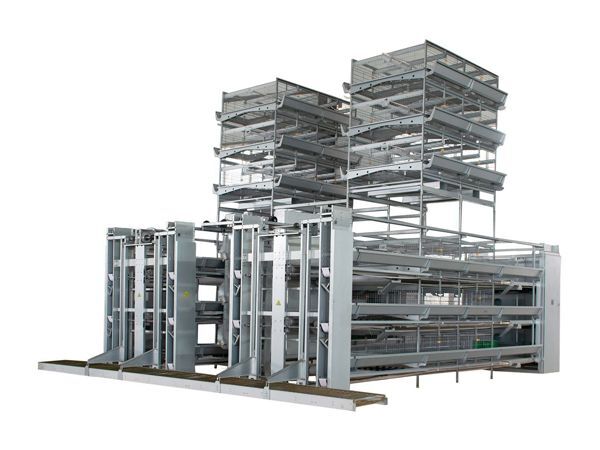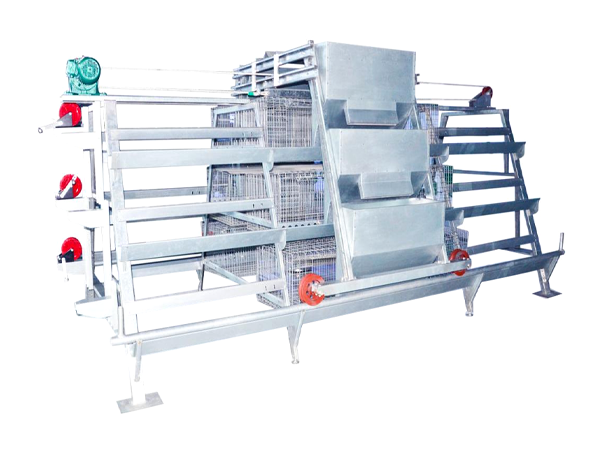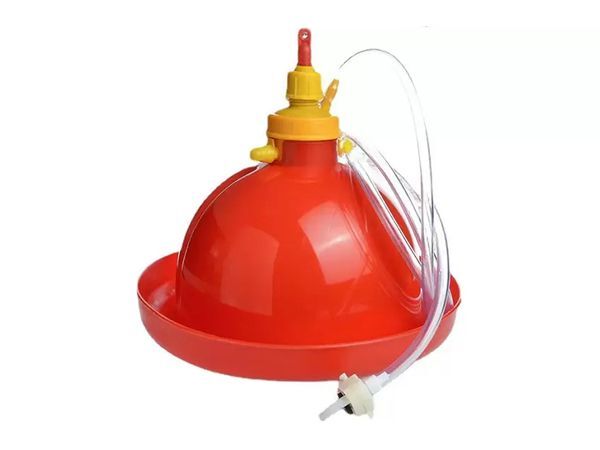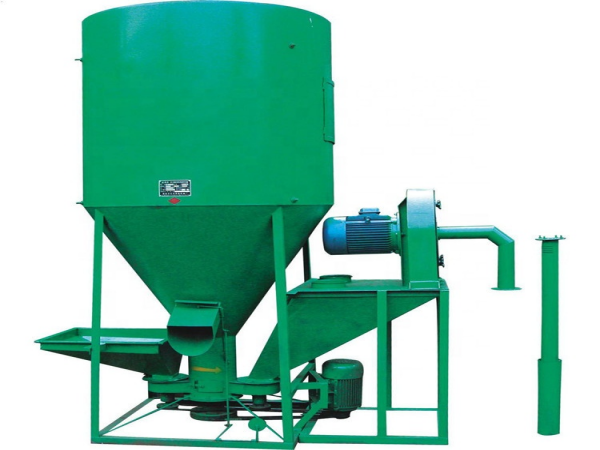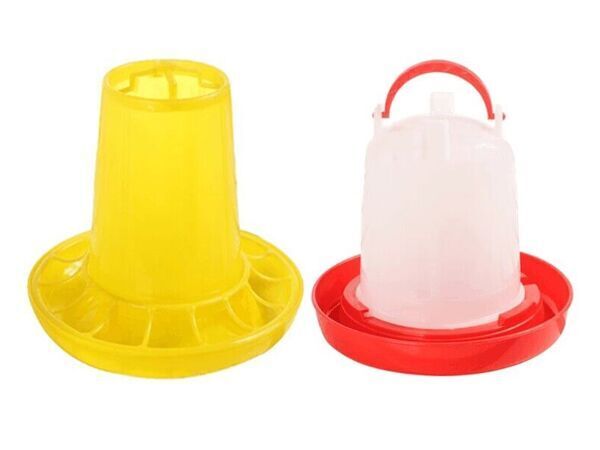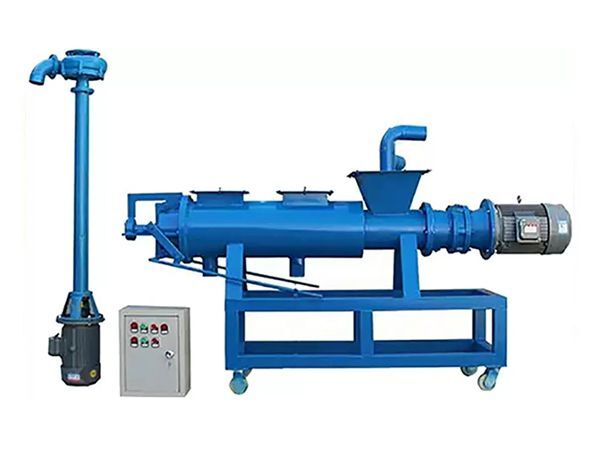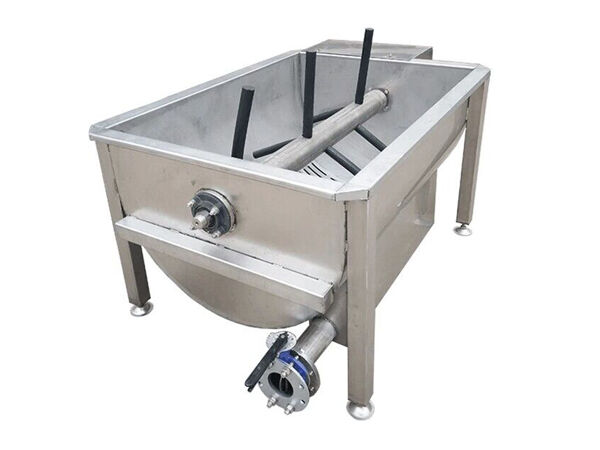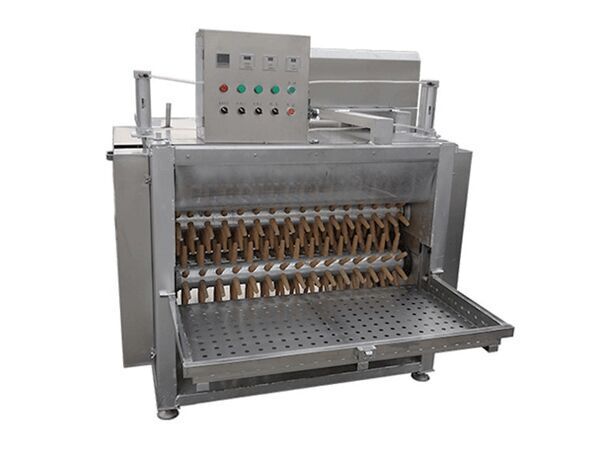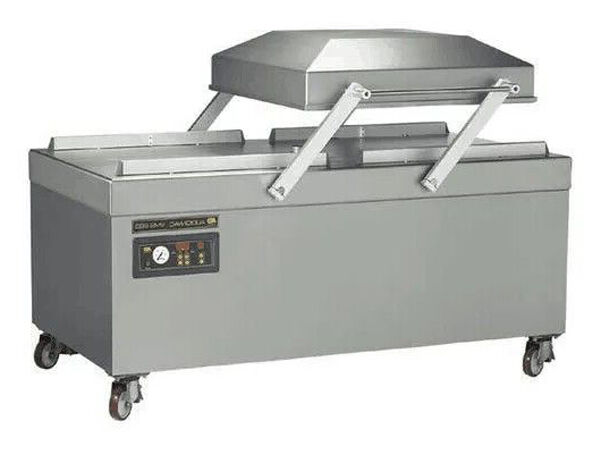
Basic information
Before eggs could turn to chicks or the process of hatching eggs involve so many factors, this means that, some factors must be considered in other to have a successful hatching process. There are variations in eggshell temperature and this has to be monitored by temperature sensors. Findings have revealed that attaching temperature sensors to eggshells is a precise tool for monitoring the hatch time of individual chicks
Hatching chicken eggs is so much interesting and the most amazing thing is that you can make profit with it when you venture into its business. What could be better than hatching eggs and selling the resulting chicks? Before your chicks hatch or arrive at the post office, be sure to have their brooder area set up and tested for a couple of days. You don’t want to find out that your only heat lamp isn’t working when you get home with your babies. Water should be at room temperature so it won’t chill the chicks

Description
An incubator is basically a box that holds eggs while maintaining an appropriate temperature, humidity, and oxygen level. Incubators have varying capacities and adapters for eggs from different species. Popular incubator models often include automatic turners, humidifiers, and temperature controllers. The incubator should be in a room that has no direct sunlight; the temperature and humidity should be controlled and stable. The incubator and hatcher should also be isolated from the growing facilities. Newly hatched chicks can be contaminated by older birds and the dust created by growing birds. Take biosecurity measures to insure the incubator area is not contaminated by older birds. Chicks may be hatched in the incubator depending on what type it is; however, hatching creates large amounts of dust and down
We are always happy to support our customers and partners with technical questions, products you may want to learn more, click the name to visit
1. Automatic battery cage for pullet, brooder, layer, chicken parents and broiler
2. Chicken feed mill, manure drying machine and egg collection
3. Deep litter plasson drinker, feeder and broiler slaughtering equipment
4. Other poultry farm equipment...
Bookmark our website and contact us now to making enquiry, visiting to our office and factory and checking the sample...
How to care for day old chicks
Are you wondering how to care for day-old chicks? Several practices have been made over the years and this has given us adequate knowledge on how chicks could be taken care of. If you are hatching your eggs through incubator or ordering day old chicks, the following information will be useful for proper care of a day old chicks
Basic Care for day old chicks
1. Keep brooder temps at 95 F for the first week, decrease by 5 degrees each week until they are fully feathered
2. Make sure there is room for chicks to get out of the heat
3. Provide probiotics in their drinking water to establish healthy digestive systems
4. Keep food and shallow water containers clean and filled.
5. Make sure there are no drafts or sunny spots to cause temperature changes in the brooder area
6. Make sure rodents, pets, or well meaning children can’t access them
Application/usage
The incubator is used to regulate temperature, humidity and turning for successful hatching of fertile eggs placed in an enclosure. It is often used for hatching eggs artificially. The incubator is recorded being used to hatch chicken eggs. It lets the foetus inside the egg grow without the mother needing to be present to provide the warmth. Chicken eggs are recorded to hatch after about 21 days, but other species of birds can take a longer or shorter amount of time
Production technology
1. Temperature
Temperature is the most critical environmental concern during incubation because the developing embryo can only withstand small fluctuations during the period. Embryo starts developing when the temperature exceeds the Physiological Zero. Physiological zero is the temperature below which embryonic growth is arrested and above which it is reinitiated. The physiological zero for chicken eggs is about 75oF (24oC)
The optimum temperature for chicken egg in the setter (for first 18 days) ranges from 99.50 to 99.75 o F and in the hatcher (last 3 days) is 98.50 F
2. Humidity
Incubation humidity determines the rate of moisture loss from eggs during incubation. In general, the humidity is recorded as relative humidity by comparing the temperatures recorded by wet-bulb and dry-bulb thermometers
Recommended incubation relative humidity for the first 18 days ranging between 55 and 60% (in setter) and for the last 3 days ranging between 65 and 75%. Higher humidity during hatching period is given to avoid dehydration of chicks
3. Ventilation
Ventilation is important in incubators and hatchers because fresh oxygenated air is needed for the respiration (oxygen intake and carbon dioxide given off) of developing embryos from egg setting until chick removal from the incubator. The oxygen needs are small during the first few days compared to the latter stages of development. Oxygen content of the air at sea level is about 21%
4. Position of eggs
Artificially incubating eggs should be held with their large ends up. It is natural for the head of the chick to develop in the large end of the egg near the air cell, and for the developing embryo to orient itself so that the head is uppermost. When the eggs are incubated with the small end up, about 60% of the embryos will develop with the head near the small end. Thus, when the chick is ready to hatch, its beak cannot break into the air cell to initiate pulmonary respiration. Eggs positioned horizontally will incubate and hatch normally as long as they are turned frequently. Under normal circumstances eggs are set with large end up for the first 18 days (in setter) and in horizontal position for the last 3 days in hatcher
5. Turning of eggs (Birds)
Including chickens and quail, turn their eggs during nest incubation. Nature provides nesting birds with the instinct of turning eggs during incubation. Similarly eggs to be turned at least 8 times a day. Turning of eggs during incubation prevents the developing embryo adhering to the extra-embryonic membranes and reduces the possibility of embryo mortality. In large commercial incubators the eggs are turned automatically each hour i.e 24 times a day
6. Storage of hatching eggs
In normal hatchery operations, eggs cannot be set immediately after they are laid. Many hatcheries set eggs once or twice in a week. If hatching eggs are stored up to 1 week, hatching eggs should be kept in an egg holding room with the temperature of 65oF and the relative humidity of 75%. When storing eggs less than 10 days, store them with the large end up. If eggs are held for 10 days or more, hatch ability will be improved if stored with small end up
Operating method
1. Before run an incubator make sure there are no remaining items present from the previous cycles
2. Make sure the door is properly closed
3. Set the desired temperature in the controller and keep monitoring it through the thermometer
4. If any organism requires a specific concentration of CO2 or a specific humidity then we also can set them in the controller
5. After setting the parameters, place the culture plates on the perforated shelves upside down
6. It is necessary to seal the plates with adhesive tapes or are placed in plastic bags to prevent contamination
Our services
1. We establish a good inter-personal relationship with our customers
2. Our incubators come in different capacity based on the customer’s capital and capacity the customers want to start with
3. We install machines at the customer’s farm and also guide them on how to operate the machine
Frequently ask questions
Q: How can you tell if eggs are fertile before incubation
A: When you crack open the egg, if it's fertile, you'll notice a small white spot on the top of the yolk about 4mm in width
Q: How do you tell if an egg is alive or dead
A: Touch the egg gently with the back of your hand when you find it. If an egg is alive, it will feel warm
Q: Where can I buy incubator for hatchery business
A: Our Company supply incubator machine of different capacity to any part of the country
Message
Products recommended
 Nigeria-China factory supplying poultry farm equipment and poultry battery cageVanke Machinery & Equipment Nig Ltd was found in 2016.
Nigeria-China factory supplying poultry farm equipment and poultry battery cageVanke Machinery & Equipment Nig Ltd was found in 2016.
1.Products for European design and quality standards, local factory production, 20% discount price to get quality products by combine with our Chinese branch.
2. Provide farm turnkey engineering solutions, quotation, production, installation and long-term maintenance of intelligent farm management systems, poultry equipment and automatic battery cages.
3. Address: After Sinoma Office, 200 Meters Near Danco Filling Station, Lagos/Ibadan Expressway, Lagos State, Nigeria.
4. 24 online Whatsapp NO. : +2348111199996, +8618830120193Read moreGetting price
 Type 1 breeder battery cage (500 to 30,000 birds)The rearing quantity can be increased about 1.5 to 3 times comparing with floor deep litter raising system and be about 1.5 to 4 times less than type 2 in same houseRead moreGetting price
Type 1 breeder battery cage (500 to 30,000 birds)The rearing quantity can be increased about 1.5 to 3 times comparing with floor deep litter raising system and be about 1.5 to 4 times less than type 2 in same houseRead moreGetting price
 Type 2 breeder battery cage (10,000 to 50,000+ birds)The rearing quantity can be increased about 3 to 8 times times comparing with floor deep litter raising system and about 1.5 to 4 times comparing with type 1 in same house and day old egg laying chicken are moved to layer battery cage after growing up to 84 daysRead moreGetting price
Type 2 breeder battery cage (10,000 to 50,000+ birds)The rearing quantity can be increased about 3 to 8 times times comparing with floor deep litter raising system and about 1.5 to 4 times comparing with type 1 in same house and day old egg laying chicken are moved to layer battery cage after growing up to 84 daysRead moreGetting price
 Type 1 layer battery cage (500 to 30,000 birds)Chicken drop manure to the manure belt under the last tier of layer cage bottom mesh
Type 1 layer battery cage (500 to 30,000 birds)Chicken drop manure to the manure belt under the last tier of layer cage bottom mesh
The belt transfer manure to terminal lateral conveyor belt with scraper in the end of every row of layer cages inside of chicken houseRead moreGetting price
 Type 2 layer battery cage (10,000 to 50,000+ birds)It is combined with egg collection belts Italian technology and terminal egg conveyor lifting system and egg conveyor system
Type 2 layer battery cage (10,000 to 50,000+ birds)It is combined with egg collection belts Italian technology and terminal egg conveyor lifting system and egg conveyor system
Chicken drop eggs to bottom layer cage mesh and egg rolls to egg beltRead moreGetting price
 Type 3 layer battery cage (50,000 to 100,000+ birds)The layer cage mesh is made of zinc aluminum alloy or hot galvanized wire
Type 3 layer battery cage (50,000 to 100,000+ birds)The layer cage mesh is made of zinc aluminum alloy or hot galvanized wire
Which has a smooth surface to protect the chicken feet without hurtRead moreGetting price
 Type 1 broiler battery cage (500 to 30,000 birds)It is fully automatic with automatic drinking and feeding and manure removal system
Type 1 broiler battery cage (500 to 30,000 birds)It is fully automatic with automatic drinking and feeding and manure removal system
Broiler cage system is with automatic drinking systemRead moreGetting price
 Type 2 broiler battery cage (30,000+ birds)The feeding system can meet the needs of different ages
Type 2 broiler battery cage (30,000+ birds)The feeding system can meet the needs of different ages
When the chicken cages transferred into the chicken cage and the feed pan will be opened on the floor in 360 degree overflow device that the chickens can eat easilyRead moreGetting price
 Bell plasson drinkerOur service are from design schemes of turnkey poultry farm project and product introduction and offer quotation and delivery and installation instruction and equipment maintenance to farm instruction and so onRead moreGetting price
Bell plasson drinkerOur service are from design schemes of turnkey poultry farm project and product introduction and offer quotation and delivery and installation instruction and equipment maintenance to farm instruction and so onRead moreGetting price
 Feeding trolleyFeed are evenly to add chicken cage feeding trough from the feed pipe by sucking feed from hopper with motorRead moreGetting price
Feeding trolleyFeed are evenly to add chicken cage feeding trough from the feed pipe by sucking feed from hopper with motorRead moreGetting price
 Common feed millFeed mill is professional in producing fodder for chicken and ducks and rabbits and pigs and cows and so on
Common feed millFeed mill is professional in producing fodder for chicken and ducks and rabbits and pigs and cows and so on
The material is grain and corn and soybean and so onRead moreGetting price
 Ground feeder and drinkerIt is to rearing 1 day to 84 days old close adult egg laying chicken and day old egg laying chicken are moved to layer battery cage after growing up to 84 daysRead moreGetting price
Ground feeder and drinkerIt is to rearing 1 day to 84 days old close adult egg laying chicken and day old egg laying chicken are moved to layer battery cage after growing up to 84 daysRead moreGetting price
 Feed pellet machineFeed pellet machine are also named feed pelletizer and chicken feed machine and animal feed pellet machine and animal feed hammer mill and animal feed puffed pellet machine and chicken feed making machineRead moreGetting price
Feed pellet machineFeed pellet machine are also named feed pelletizer and chicken feed machine and animal feed pellet machine and animal feed hammer mill and animal feed puffed pellet machine and chicken feed making machineRead moreGetting price
 Egg incubator machineOur service are from design schemes of turnkey poultry farm project and product introduction and offer quotation and delivery and installation instruction and equipment maintenance to farm instruction and so onRead moreGetting price
Egg incubator machineOur service are from design schemes of turnkey poultry farm project and product introduction and offer quotation and delivery and installation instruction and equipment maintenance to farm instruction and so onRead moreGetting price
 Scraper manure removal systemThe manure scraper will go from the beginning of the hollow to the end
Scraper manure removal systemThe manure scraper will go from the beginning of the hollow to the end
One set is working for 2 rows or 3 rows of chicken cageRead moreGetting price
 Manure drying machineOur service are from design schemes of turnkey poultry farm project and product introduction and offer quotation and delivery and installation instruction and equipment maintenance and to farm instruction and so onRead moreGetting price
Manure drying machineOur service are from design schemes of turnkey poultry farm project and product introduction and offer quotation and delivery and installation instruction and equipment maintenance and to farm instruction and so onRead moreGetting price
 Scalding machineOur service are from design schemes of turnkey poultry farm project and product introduction and offer quotation and delivery and installation instruction and equipment maintenance to farm instruction and so onRead moreGetting price
Scalding machineOur service are from design schemes of turnkey poultry farm project and product introduction and offer quotation and delivery and installation instruction and equipment maintenance to farm instruction and so onRead moreGetting price
 Common defeather machineOur service are from design schemes of turnkey poultry farm project and product introduction and offer quotation and delivery and installation instruction and equipment maintenance to farm instruction and so onRead moreGetting price
Common defeather machineOur service are from design schemes of turnkey poultry farm project and product introduction and offer quotation and delivery and installation instruction and equipment maintenance to farm instruction and so onRead moreGetting price
 Vacuum packing machineOur service are from design schemes of turnkey poultry farm project and product introduction and offer quotation and delivery and installation instruction and equipment maintenance to farm instruction and so onRead moreGetting price
Vacuum packing machineOur service are from design schemes of turnkey poultry farm project and product introduction and offer quotation and delivery and installation instruction and equipment maintenance to farm instruction and so onRead moreGetting price
 Ventilation control systemThe fans in front of the chicken house suck the fresh air and water in pads to the end of the chicken house
Ventilation control systemThe fans in front of the chicken house suck the fresh air and water in pads to the end of the chicken house
Sidewall windows are changing air and both air and water go through the whole chicken houseRead moreGetting price
Contact
By clicking 'Allow All', you agree to the storage of cookies on your device to enhance site navigation, analyze site usage and assist with our marketing efforts.


